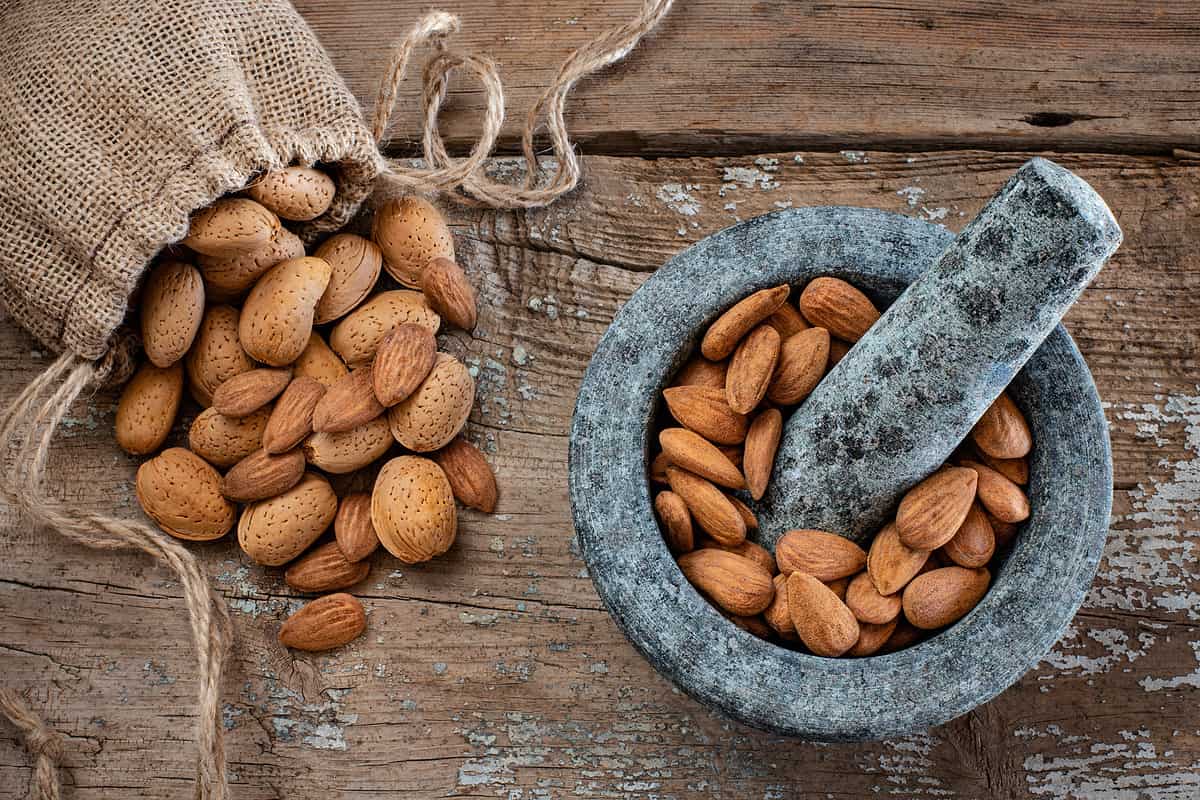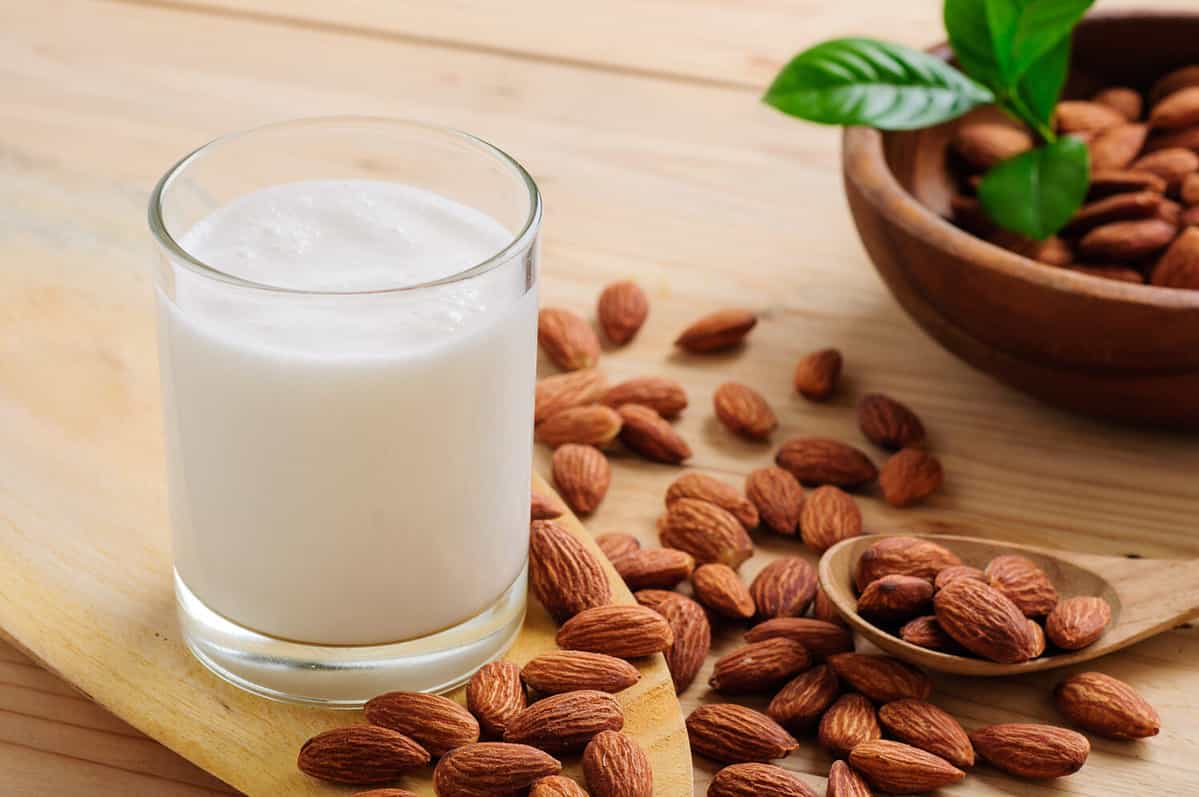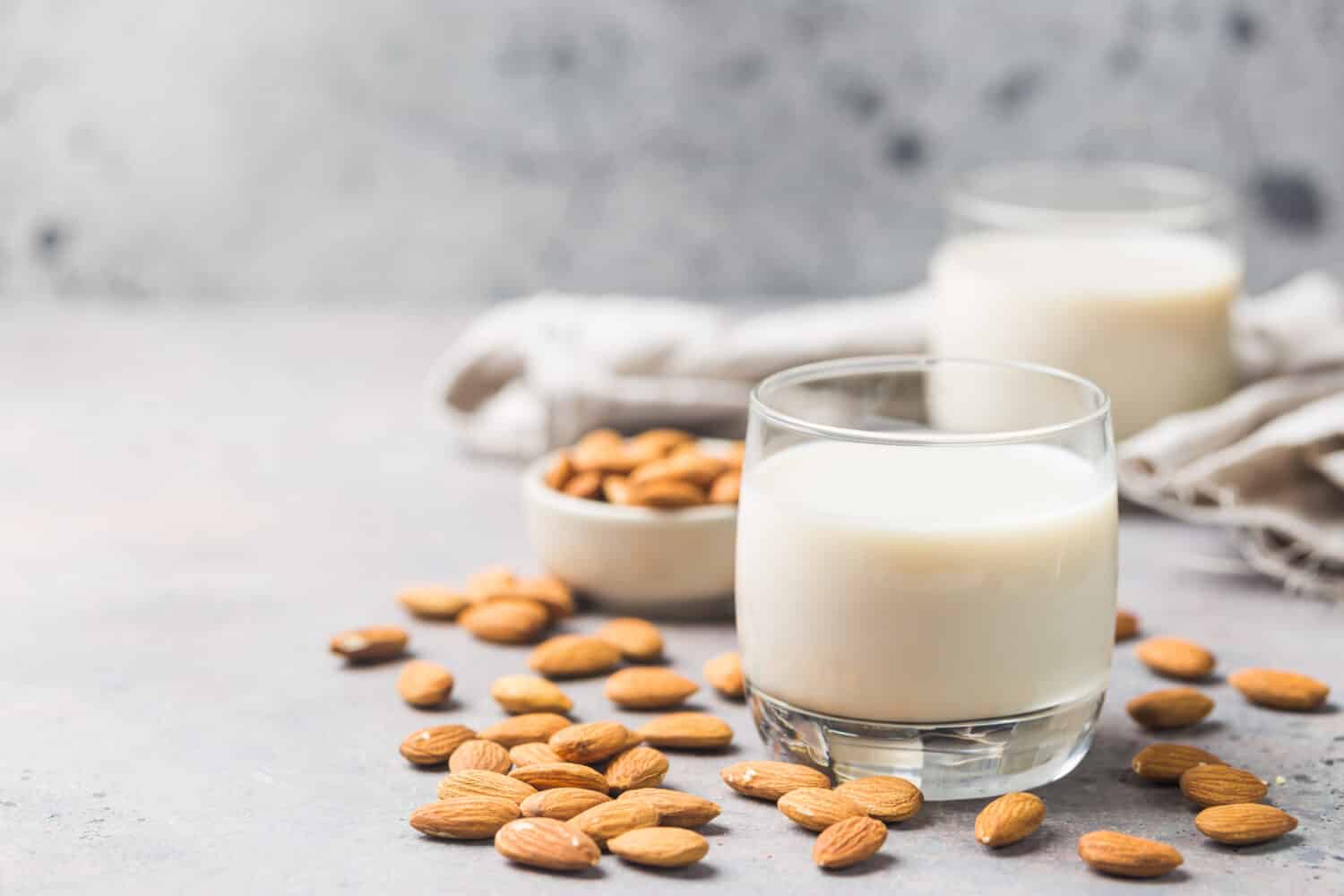With dairy allergies and healthier diet fads on the rise, many are looking for dairy-free or healthier milk options. There are many different kinds of milk you can choose from these days, including cow's milk, almond milk, oat milk, coconut milk, cashew milk, rice milk, and more. Almond milk is a common choice and is one of the top-selling plant-based milks. It offers a great flavor and texture that some believe to compare to cow's milk. And because it's plant-based, it is believed to be a healthier option. But is almond milk actually healthy for you?
The quick answer is yes, almond milk can be healthy, but it depends on the kind you purchase. Let's take a deeper look into what almond milk is and the characteristics that can make it a healthy or unhealthy choice for you and your family.

©iStock.com/Gulcin Ragiboglu
What Is Almond Milk?
The simplest form of almond milk is a plant-based milk made with ground-up almonds and water. Almonds and water are mixed and blended until smooth, and then it is strained to remove the almond sediment. The liquid that remains is the smooth liquid that is almond milk.
Is Almond Milk Healthy?
Almond milk can be healthy depending on the kind that you buy. The most healthy almond milk will be the ones without any additives. There is almond milk that includes other ingredients, including flavors, sweeteners, thickeners, and preservatives. These are added to either make it taste more appetizing for some or to extend the shelf-life of the products.
“Healthy” can mean different things for different people. So, looking at the nutritional facts of almond milk will help us understand how almond milk can benefit us. It is low in calories compared to cow's milk or other plant-based milk. It is also a great source of vitamin E which is an antioxidant and supports skin, eye, and heart health. Because almonds do not have sufficient amounts of vitamin D and calcium, some almond milk has added these nutrients.

©Wichy/Shutterstock.com
When Is Almond Milk Not Healthy?
The most obvious reason almond milk would not be healthy for you is if you're purchasing the kinds that are flavored and sweetened. Naturally, almond milk is low in sugar, but these additives can quickly make almond milk an unhealthy option and lead to dental issues and weight gain. If sugar intake is high and not consumed in moderation, it can lead to other long-term health issues and chronic diseases.
Comparing almond milk to cow's milk, it is very low in protein. Per cup, almond milk contains about one gram of protein, whereas cow's milk provides eight grams of protein. Protein is a very important part of our diet and is needed for muscle growth and bone health. It's important to note that if your family is drinking almond milk, it does not have sufficient nutrients for toddlers. Children need calories, protein, fat, minerals, and vitamins, which most plant-based milks lack.
How To Pick Healthy Almond Milk
When shopping, you will find many different varieties of almond milk. If you're looking for healthier almond milk, make sure to purchase unsweetened and unflavored. Also, to ensure you're getting important vitamins and minerals, check if the milk is fortified with vitamin D and calcium.

©deryabinka/Shutterstock.com
How To Make Almond Milk
If you want to ensure you get the cleanest and most pure almond milk, you can make it easily at home! It just takes some time and a little bit of effort. You will use a 1:2 ratio of almonds to milk. First, you will need to soak the almonds in water overnight. Once completed, drain the almonds and add them into a blender, where you will then pulse for one to two minutes. You will want to keep blending until the almonds are finely ground, the water is cloudy, and the liquid looks smooth. Then, pour this mixture over a strainer and cheesecloth to ensure all debris is removed.
Summary
Overall, almond milk can be a healthy option if it does not contain additional sugars. Without the additives, it does not cause harm as it is low in calories. But, it is not always nutritious either as it lacks vitamins, minerals, and protein. You can find almond milk that is fortified with vitamin D and calcium which makes it a better option. But, you will need to find a sufficient protein source elsewhere.
The image featured at the top of this post is ©Goskova Tatiana/Shutterstock.com.
